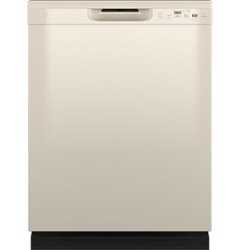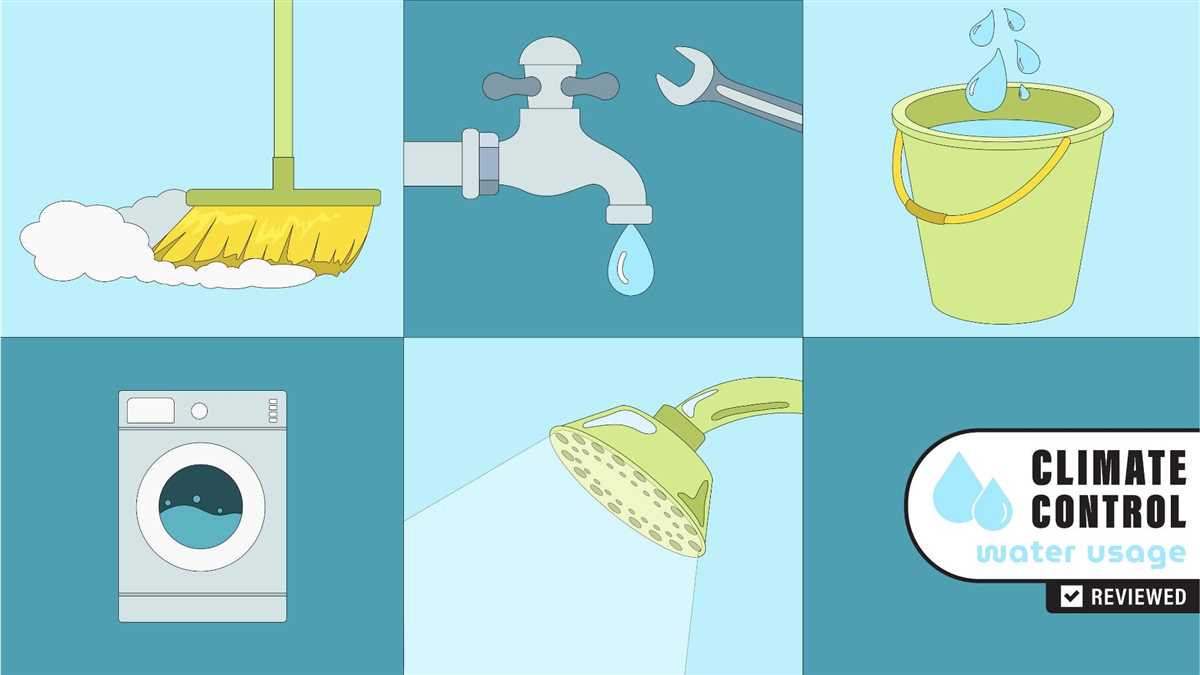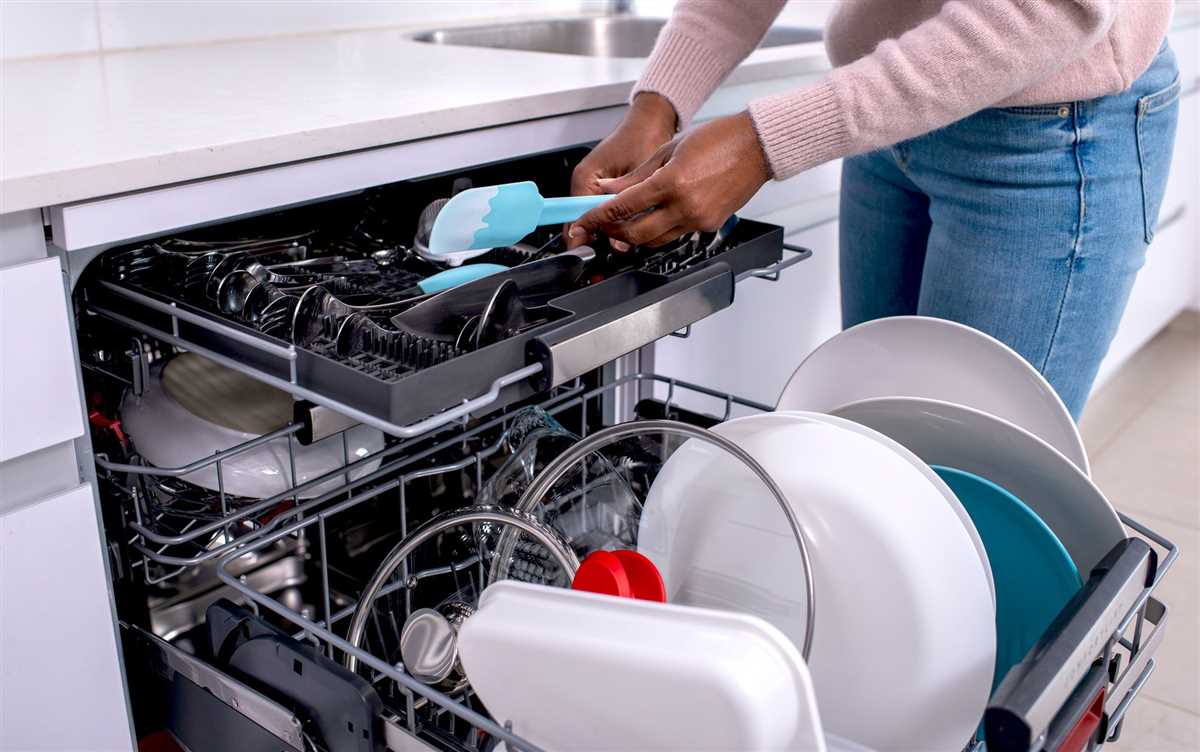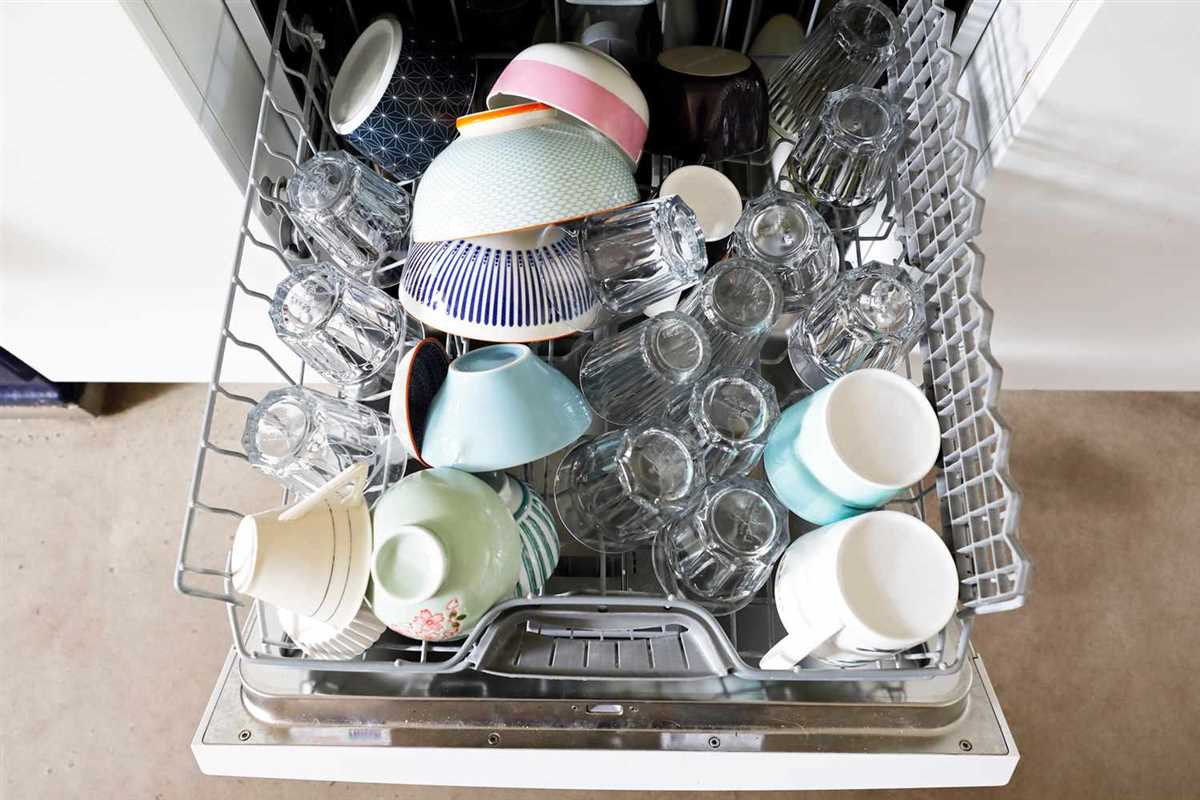




When it comes to saving water during droughts, it is important to consider the efficiency of your household appliances. One area where water consumption can add up quickly is in the use of dishwashers. That’s why it is crucial to compare and select models that can save water and energy.
By choosing an efficient dishwasher, you not only save water, but also reduce your energy costs. An inefficient machine can waste a significant amount of water and electricity over time. In fact, some older models can use up to 50 liters of water per cycle, which is approximately four times more than newer, more efficient models.
With a reliable and efficient dishwasher, you can save not only water but also time and effort. By allowing you to wash multiple dishes and utensils together, with the correct amount of water and detergent, these appliances streamline the process and ensure a thorough cleaning. Compared to washing dishes by hand, dishwashers also have the advantage of creating less waste and using less water.
In conclusion, choosing an efficient dishwasher is a smart and environmentally-friendly decision. Not only will you save water and energy, but you will also save time and effort. By selecting a dishwasher with the appropriate size and cycle options, you can accommodate the needs of your household while minimizing water consumption. So, why wait? Start saving water and the planet by finding a top-notch dishwasher on the market today.
Saving Water with Efficient Dishwashers
When it comes to saving water during droughts, one of the best solutions is to invest in efficient dishwashers. These appliances are designed specifically to minimize water consumption while still effectively cleaning your dishes.
Efficient dishwashers have various features that contribute to their water-saving capabilities. For example, they often have oversized tubs that can accommodate more dishes in one cycle. This means you can wash more dishes at once and reduce the number of cycles needed, ultimately saving water.
Another feature of efficient dishwashers is the option to select different cycle settings. Instead of using a full cycle for every load, you can choose shorter or more eco-friendly cycles for lightly soiled dishes. This further reduces water consumption without compromising on cleanliness.
Energy-efficient dishwashers are also equipped with efficient rack designs. These designs ensure that dishes are positioned optimally for better water distribution and cleaning. By using the right rack position, you can save water and still achieve sparkling clean dishes.
When shopping for an efficient dishwasher, look for the Energy Star label. Energy Star-certified dishwashers are tested and proven to be highly efficient in terms of water and electricity consumption. Choosing a dishwasher with this label can save you money on utility costs in the long run.
In addition to using efficient dishwashers, there are other tips you can follow to save water in the kitchen. For example, you can scrape food waste off plates instead of rinsing them before loading them into the dishwasher. This reduces water usage and prevents clogging in the dishwasher.
It’s also a good idea to only run the dishwasher when it’s full. Running the dishwasher with a full load ensures that you make the most out of each cycle and save water in the process.
In conclusion, efficient dishwashers are an excellent choice for saving water during droughts. With their water-saving features and energy-efficient designs, they can help reduce water consumption in the kitchen and contribute to a more sustainable way of living. So next time you’re in the market for a new dishwasher, consider choosing an efficient model that can help you save water and protect our planet for future generations.
Water Efficiency
When it comes to saving water, using an efficient dishwasher can make a big difference. These dishwashers are designed to use water more efficiently compared to traditional models, allowing you to conserve water during droughts and help protect the planet.
So, how does an efficient dishwasher work? In a nutshell, it does a great job of washing your dishes while using less water. It achieves this by selecting the correct water consumption for each load and making sure that it efficiently cleans all your dishes, from plates and glasses to cutlery and spoons.
One important tip for using your dishwasher efficiently is to make sure that you load it correctly. Follow the dishwasher’s user guide to find out exactly how to place your items in the dishwasher. By doing this correctly, you can fit more dishes in each load, reducing the number of times you need to run your dishwasher.
When it comes to washing your dishes, there are a few hints and tips to keep in mind. First, make sure you scrape off any leftover food before placing your dishes in the dishwasher. This will help to prevent any food particles from clogging the dishwasher’s filters and ensure that your dishes come out clean.
For heavily soiled dishes with baked-on food, you may want to consider running a pre-wash cycle. This will help to loosen any stubborn food particles, making it easier for the dishwasher to clean your dishes. Just be aware that running a pre-wash cycle will use more water and energy, so it’s best to use it only when necessary.
Meanwhile, for average or lightly soiled dishes, you can typically just load them directly into the dishwasher. Be sure to arrange them in a way that allows the water to reach all surfaces. This means placing items in a mix of sizes and not overcrowding the dishwasher.
When it comes to saving water and energy, you can also look out for the ENERGY STAR label when buying a dishwasher. ENERGY STAR models are designed to use less energy and water compared to standard models, saving you money on utility costs in the long run.
In conclusion, by using an efficient dishwasher and following these tips, you can save water, energy, and money while still maintaining clean and shiny dishes. So, next time you’re in the market for a new dishwasher, remember to compare water consumption and select the most energy-efficient model. Together, we can make a difference in saving our precious resources and towards a more sustainable way of living.
Innovative Technology

When it comes to selecting a dishwasher, there are many factors to consider. Size, look, and cost are important, but efficiency should be at the top of the list. Luckily, today’s dishwashers come with innovative technology that not only saves water but also energy.
Energy-Saving Options
One of the key features of energy-efficient dishwashers is the ability to select multiple wash cycles. This allows you to choose a washing mode that best suits your needs. For example, if you have dishes with baked-on food, you can select a special mode that uses higher heat to remove the stubborn stains.
Energy-saving dishwashers also come with a label that indicates their energy consumption. Look for the ENERGY STAR label, as this ensures that the dishwasher meets strict energy efficiency standards set by the government. The label also provides information on how much energy and water the dishwasher uses, helping you make an informed decision.
Water-Saving Tips

In addition to using energy-saving technology, dishwashers also offer water-saving options. Here are some hints on how to save water while washing your dishes:
- Wait until the dishwasher is full before running a cycle. Running a dishwasher with only a few items wastes water and energy.
- Scrape off any large food particles from your dishes instead of rinsing them under running water. Most modern dishwashers can handle small amounts of leftover food.
- If you need to pre-rinse your dishes, use a separate basin filled with water instead of running water from the tap.
- Instead of hand-washing pots and pans, consider using the dishwasher. Dishwashers are more efficient and use less water than hand-washing.
- Choose shorter wash cycles whenever possible. Many dishwashers now offer quick wash options that can clean your dishes in a shorter amount of time.
Frequently Asked Questions

Here are some common FAQs about using energy-efficient dishwashers:
- How much water does a dishwasher use per cycle?
- How long does a dishwasher last?
- Can dishwashers wash knives and other sharp items?
- Is it healthier to wash dishes by hand?
- How much does an energy-efficient dishwasher cost?
The average dishwasher uses about 4-6 gallons of water per cycle. However, this can vary depending on the dishwasher model and settings.
A well-maintained dishwasher can last around 9-13 years on average. Regular cleaning and proper use can extend the lifespan of your dishwasher.
Most dishwashers have a separate rack or compartment for knives and other sharp items. This allows you to wash them safely without risking injury.
Contrary to popular belief, using a dishwasher is actually more hygienic than washing dishes by hand. Dishwashers use high temperatures and detergent to kill bacteria and remove food particles more effectively.
The cost of an energy-efficient dishwasher can vary depending on the brand, model, and features. On average, these dishwashers can range from $500 to $1500, but they can help you save on energy and water costs in the long run.
With the latest energy-efficient dishwashers on the market, you no longer have to compromise on looks or performance. These machines are not only reliable and easy to use but also offer significant water and energy savings. So why wait? Let an innovative dishwasher take care of your dirty dishes while you save water and energy!
Energy-Saving Features
When it comes to saving water during droughts, using an energy-efficient dishwasher can make a significant difference. Many newer models come with a range of energy-saving features that not only conserve water but also reduce power consumption. Here are some of the top features to look for:
1. Energy Star Certification
One of the first things to check for is whether the dishwasher is Energy Star certified. Energy Star is a trusted symbol that ensures the appliance meets strict energy efficiency guidelines set by the Environmental Protection Agency (EPA) and the Department of Energy (DOE). An Energy Star certified dishwasher can save up to 5,000 gallons of water per year compared to older models.
2. High-Efficiency Washing
Energy-efficient dishwashers use less water and energy by using a combination of sensors and jets to determine the amount of water needed for each load. They are designed to spray water from multiple angles, ensuring thorough cleaning while minimizing water consumption. Additionally, some models have special cycles for specific types of dishes, such as a delicate cycle for fragile glassware or a high-temperature cycle for heavily soiled pots and pans.
3. Delayed Start Feature
Another feature to look for is a delayed start option. This allows you to set a specific time for the dishwasher to start the cleaning cycle, making it possible to run it during off-peak hours when energy costs are lower. By taking advantage of this feature, you can save money on your utility bills.
4. Air Drying and Heat Drying
Energy-saving dishwashers often offer options for air drying or heat drying. Air drying uses natural airflow to dry your dishes, while heat drying uses a heating element to speed up the drying process. Choosing the air drying option consumes less energy, but it may take longer for your dishes to dry. On the other hand, heat drying provides faster results, but it uses more energy.
5. Efficient Dish Racks

Efficient dish racks are designed to accommodate more dishes and utensils, allowing you to wash larger loads at once. Some models have a third rack that provides additional space for small items or utensils. This not only saves water and energy but also reduces the number of washing cycles needed.
In conclusion, when it comes to energy-saving and water-saving features, there are plenty of options available in the market. Look for an Energy Star certified dishwasher with high-efficiency washing, a delayed start feature, air drying or heat drying options, and efficient dish racks. By choosing a reliable brand and following these tips, you can save both money and the planet one load at a time.
Quick Cleaning Cycles
When it comes to saving water and energy in your household, choosing the right dishwasher is crucial. One of the key features to consider is the efficiency of the dishwasher’s cleaning cycles.
Many dishwashers offer a variety of cleaning cycle options, allowing you to select the one that best suits your needs. Look for dishwashers that have quick cleaning cycles, as these can save both water and energy.
The quick cleaning cycles are designed to be used for lightly soiled dishes that don’t require a long washing time. These cycles are typically shorter in duration and use less water and energy compared to the regular cycles.
By using the quick cleaning cycles, you can effectively clean your dishes without wasting too much water or waiting for a long cycle to finish.
Additionally, some dishwashers have special features that allow you to customize the quick cleaning cycle based on your specific needs. For example, you may be able to select the water temperature or adjust the water pressure.
Using the quick cleaning cycle can also help you save money on your utility bills. Since these cycles use less water and energy, they are more cost-efficient and can help lower your monthly electricity or water bill.
It’s important to note that the quick cleaning cycles may not be suitable for heavily soiled dishes or those with baked-on food. In such cases, it’s advisable to use the regular or heavy-duty cycles to ensure proper cleaning.
When loading your dishwasher, make sure to place the dishes correctly to allow them to be cleaned effectively. Use the dishwasher’s tray and racks to accommodate different sized dishes and pans.
To save even more water and energy, avoid pre-rinsing your dishes before loading them into the dishwasher. Most modern dishwashers are designed to effectively remove food residue without the need for pre-rinsing.
If you’re unsure about which cycle to use, refer to the dishwasher’s user manual or check the label on the machine. The manufacturer usually provides guidelines on which cycle is most suitable for different types of dishes and levels of cleaning.
In summary, using the quick cleaning cycles on your dishwasher can help save water, energy, and money. Take advantage of the features and options available on your dishwasher, and let the machine do the work while you focus on other tasks.
Smart Water Management
When it comes to saving water, using an efficient dishwasher is an appropriate and smart choice. These energy-efficient appliances can save both water and money, making them a great addition to your kitchen.
But how can you select the most water-efficient dishwasher for your needs? Let us guide you with some helpful tips:
- Compare water consumption: Look for the Water Consumption label on the dishwasher. The lower the number, the more water-efficient the dishwasher is. Additionally, choose dishwashers with a high energy rating, indicated by the ENERGY STAR label.
- Choose the appropriate cycle: Many modern dishwashers offer multiple cycles, such as heavy-duty, normal, eco, and quick. Selecting the appropriate cycle for your dishes will help you save water and energy.
- Load the dishwasher efficiently: Make sure to place your items appropriately in the dishwasher rack. Arrange plates, bowls, and utensils in such a way that they don’t block the water spray. Similarly, don’t overcrowd the dishwasher, as this may affect the cleaning efficiency.
- Scrape off food: Pre-rinsing your dishes under the tap uses a significant amount of water. Instead, simply scrape off food residues from plates and pans and let the dishwasher do the rest. Most modern dishwashers can handle dried-on food without any issues.
- Run full loads: Running your dishwasher only when it’s full is a simple yet effective way to save water. Don’t waste water by running partial loads. By waiting for a full load, you’ll make the most efficient use of water and electricity.
- Use a special detergent: There are dishwasher detergents available on the market that are specifically designed to help save water. These products are formulated to clean efficiently with less water, reducing your water consumption even further.
By following these tips, you can save water, money, and contribute to a healthier planet. Investing in an energy-efficient dishwasher that suits your needs will not only lower your water and electricity costs but also reduce your impact on the environment.
FAQ
How can I save water during a drought?
You can save water during a drought by using efficient dishwashers that consume less water. Mixing your spoons, knives, and forks together before washing them can also help in conserving water.
What are some ways to conserve water during a drought?
There are several ways to conserve water during a drought. One way is to use efficient dishwashers that consume less water. Another way is to mix your spoons, knives, and forks together before washing them, reducing the number of wash cycles and thus saving water.
Are there specific dishwashers that are more water-efficient?
Yes, there are specific dishwashers that are designed to be more water-efficient. These dishwashers are equipped with advanced technologies that reduce water consumption while still providing effective and thorough cleaning.
What is the benefit of mixing spoons, knives, and forks together before washing them?
Mixing spoons, knives, and forks together before washing them can help save water during a drought. By doing this, you can reduce the number of wash cycles required, thus conserving water and energy.
Do efficient dishwashers save both water and energy?
Yes, efficient dishwashers not only save water but also save energy. These dishwashers are designed to use less water and require less energy to operate, making them more environmentally friendly and cost-effective in the long run.
Can I still wash my dishes by hand during a drought?
Washing dishes by hand can be less water-efficient during a drought. It is recommended to use efficient dishwashers that consume less water and energy. However, if you prefer handwashing your dishes, you can still follow the practice of mixing spoons, knives, and forks together to reduce water usage.
Are there any other tips for saving water during droughts?
Yes, in addition to using efficient dishwashers and mixing utensils together, you can also consider taking shorter showers, fixing any leaks in your plumbing, and using water-saving appliances and fixtures throughout your home. These small changes can make a big difference in conserving water during a drought.











